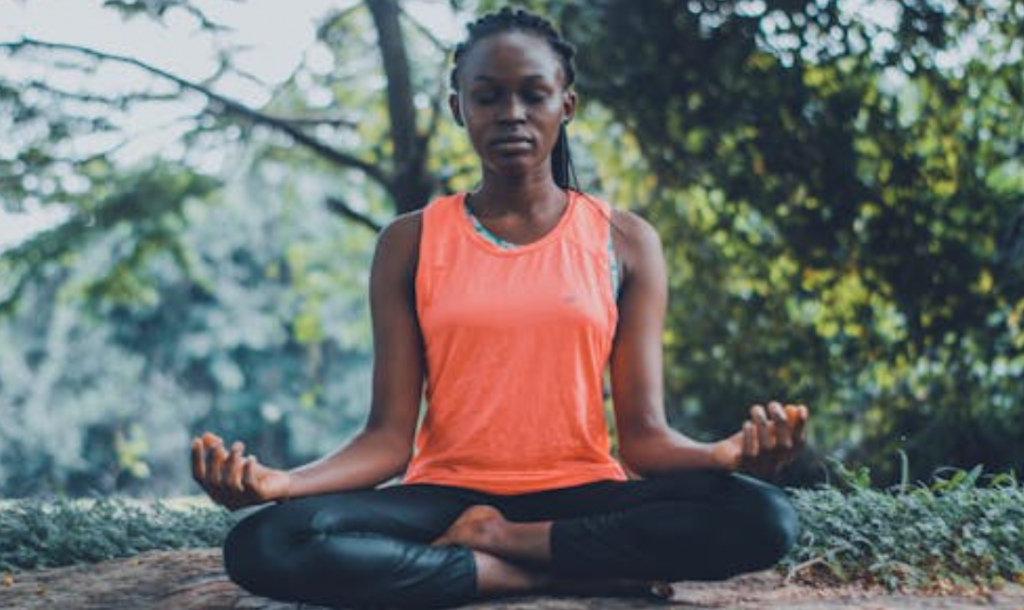
Stress has become a common part of modern life, affecting people of all ages and backgrounds. While some stress is normal, chronic stress can have a detrimental effect on both physical and mental health. Mindfulness and meditation are powerful tools that can help reduce stress and promote overall well-being. In this article, we will explore various mindfulness and meditation techniques that can be used to alleviate stress and improve quality of life.
Introduction
Definition of Mindfulness and Meditation
Mindfulness is the practice of being fully present and aware of the present moment, without judgment. It involves paying attention to thoughts, feelings, and sensations as they arise, and accepting them without trying to change them.
Meditation, on the other hand, is a practice that involves focusing the mind on a particular object, thought, or activity to achieve a mentally clear and emotionally calm state. It often involves deep breathing and relaxation techniques.

Importance of Mindfulness and Meditation for Stress Reduction
Research has shown that mindfulness and meditation can have a profound impact on reducing stress levels. By focusing on the present moment and cultivating a sense of inner peace, these practices can help individuals cope with the challenges of daily life and reduce the negative effects of stress on the body and mind.
Mindfulness Techniques
Body Scan Meditation
Body scan meditation involves systematically scanning the body for any tension or discomfort and then releasing it. This practice helps increase body awareness and promotes relaxation.
Mindful Breathing
Mindful breathing involves paying attention to the breath as it moves in and out of the body. By focusing on the breath, individuals can calm the mind and reduce stress levels.
Mindful Walking
Mindful walking is a practice that involves walking slowly and deliberately, paying attention to each step and the sensations in the body. This practice can help ground individuals in the present moment and reduce feelings of anxiety and stress.
Meditation Techniques
Loving-Kindness Meditation
Loving-kindness meditation involves sending wishes of love, compassion, and goodwill to oneself and others. This practice can help cultivate feelings of kindness and empathy, reducing stress and promoting emotional well-being.
Transcendental Meditation
Transcendental meditation is a technique that involves silently repeating a mantra to focus the mind and achieve a state of deep relaxation. This practice has been shown to reduce stress and improve overall health and well-being.
Guided Imagery Meditation
Guided imagery meditation involves imagining a peaceful and relaxing place, such as a beach or forest, and focusing on the sights, sounds, and sensations of that place. This practice can help reduce stress and promote feelings of calm and relaxation.
Benefits of Mindfulness and Meditation
Reduced Stress and Anxiety
One of the primary benefits of mindfulness and meditation is their ability to reduce stress and anxiety levels. By calming the mind and promoting relaxation, these practices can help individuals cope with the pressures of daily life more effectively.
Improved Focus and Concentration
Mindfulness and meditation can also help improve focus and concentration. By training the mind to stay present and attentive, these practices can enhance cognitive function and productivity.
Better Emotional Regulation
Another benefit of mindfulness and meditation is improved emotional regulation. By becoming more aware of their thoughts and feelings, individuals can learn to respond to stressful situations more calmly and rationally.

Incorporating Mindfulness and Meditation Into Daily Life
Setting Aside Dedicated Time
To reap the benefits of mindfulness and meditation, it is important to set aside dedicated time for practice each day. This can be as little as 10-15 minutes, but consistency is key.
Integrating Mindfulness Into Daily Activities
In addition to formal meditation practice, mindfulness can also be integrated into daily activities such as eating, walking, and even washing dishes. By paying attention to the present moment during these activities, individuals can cultivate a sense of mindfulness throughout the day.
Joining a Meditation Group or Class
For those who are new to mindfulness and meditation, joining a meditation group or class can be helpful. This can provide support and guidance, as well as a sense of community with others who are on a similar journey.
Challenges and Tips
Dealing With a Wandering Mind
One of the biggest challenges of mindfulness and meditation is dealing with a wandering mind. It is normal for thoughts to arise during practice, but the key is to gently bring the focus back to the present moment without judgment.
Finding the Right Technique
There are many different mindfulness and meditation techniques, and not all of them will resonate with everyone. It may take some trial and error to find the right technique for you, so it’s important to explore different options.
Being Patient With Progress
Mindfulness and meditation are practices that require patience and persistence. It’s important to remember that progress may be slow and subtle, but with continued practice, the benefits will become more apparent.
Conclusion
In conclusion, mindfulness and meditation are powerful tools for reducing stress and promoting overall well-being. By incorporating these practices into daily life, individuals can cultivate a sense of inner peace and resilience that can help them cope with the challenges of modern life. Whether it’s through body scan meditation, loving-kindness meditation, or simply taking a mindful walk, there are many ways to integrate mindfulness and meditation into daily life and reap the benefits.
FAQs
- Can mindfulness and meditation help with physical health?
- Yes, mindfulness and meditation have been shown to have a positive impact on physical health, including reducing blood pressure, improving sleep, and boosting the immune system.
- How long does it take to see benefits from mindfulness and meditation?
- The benefits of mindfulness and meditation can vary from person to person, but some studies suggest that significant benefits can be seen in as little as a few weeks with regular practice.
- Can mindfulness and meditation be practiced by anyone?
- Yes, mindfulness and meditation can be practiced by anyone, regardless of age, background, or physical ability. There are many different techniques that can be adapted to suit individual needs and preferences.
- Is it better to practice mindfulness and meditation in the morning or







